Join us for conversations that inspire, recognize, and encourage innovation and best practices in the education profession.
Available on Apple Podcasts, Spotify, Google Podcasts, and more.
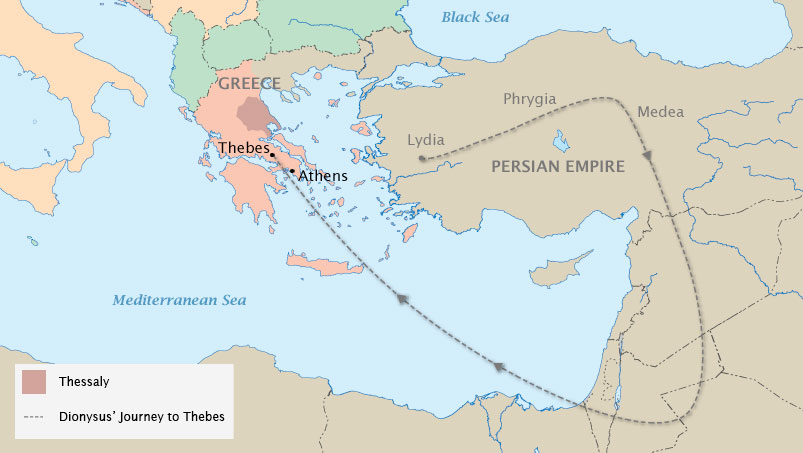
As the play opens, Dionysus has returned from the east, where his cult has been established.
© 2010 Map Resources, All rights reserved.
Greece is very small compared to her eastern neighbor, the Persian Empire. Today’s Turkey was the westernmost outpost of the Persians, who wanted to expand farther west—by conquering Greece. The threat of foreigners from the east is played out in The Bacchae, when Dionysus circles through Persian lands and then takes a direct line to Greece, bringing with him the strange new religion that will destroy the city of Thebes.
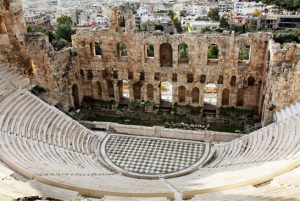
The beginning of the era of classical Greek theater.
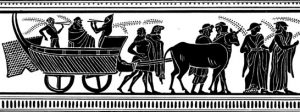
The Great Dionysia (the religious festival of Dionysus, also known as the City Dionysia) is established in Athens. Processions, plays, awards, tributes to the God, and by some accounts animal sacrifice and other ritual acts, took place.
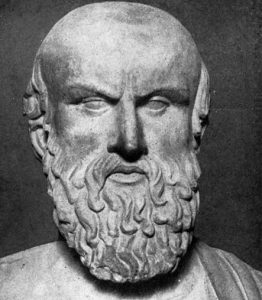
Aeschylus is born.
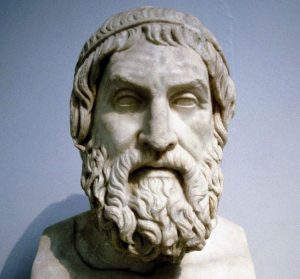
Sophocles is born.
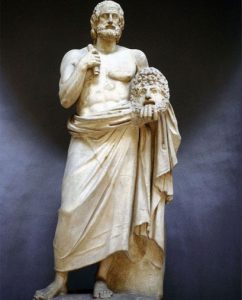
Euripides is born.
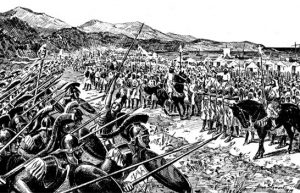
The Battle of Thermopylae in Spartan War against the Persians; the Persians were victorious, but conflict with the East continued for much of Euripides’ life. This was not a peaceful era.
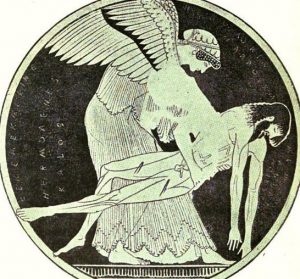
The likely date that Euripides’ first play, Rhesus, was written.
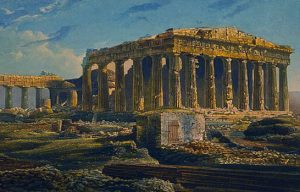
Construction of the Parthenon begins.
Aristophanes is born. This comic playwright critiques Euripides in his play “The Frogs,” in which both Euripides and Aeschylus defend their plays to Dionysus who is judging a contest in the underworld.
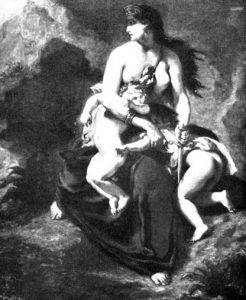
The first performance of Euripides’ Medea.
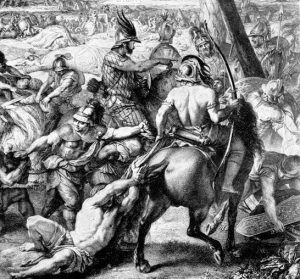
The Peloponnesian War is fought between Athens and its allies and Sparta, the head of the Peloponnesian League; Athens is defeated after years of drawn-out conflict.
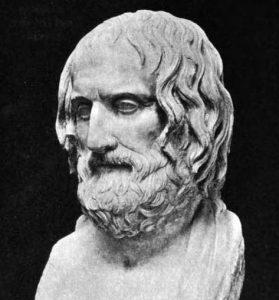
The death of Euripides.
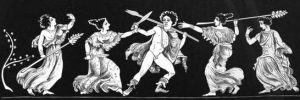
The first posthumous presentation of The Bacchae.
Aristotles’ Poetics defines the terms of tragedy and discusses Euripides as a classic dramatist.
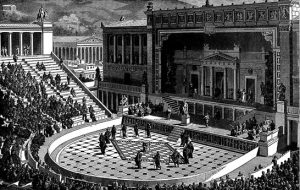
The end of the era of classical Greek theater.